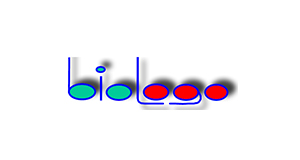S-100 beta
S-100 beta, IgG1, Clone: SH-B1
Artikelnummer
BILSM100
Verpackungseinheit
1 ml
Hersteller
BioLogo
Verfügbarkeit:
wird geladen...
Preis wird geladen...
Clone: SH-B1
Background: The S-100 antibody has frequently been used for the detection of melanoic tumours. In brain tumours and metastases the antibody may be used for differentiation between glia derived tissue and tissues derived from other cell types. S-100 helps in differentiation of Melanoma and Schwannoma from other soft tissue tumours. It is also found in tumours of the salivary glands. S-100 is a homo- or heterodimer filament protein, composed of an alpha and a beta chain. In normal tissues it is found in glia and ependyma of the brain. In the periphery it is found in Schwann Cells, Melanocytes and in Langerhans Cells of the skin. In lymph nodes Interdigitating Cells are labelled. S-100 A0, which is exprimed e.g. by neurons, heart muscle and monocytes, will not be detected by this monoclonal antibody. S-100 ß, S-100 A (alpha/beta) and S-100 B (beta/beta), not reactive with S-100 A0 (alpha/alpha), Calmodulin, Parvalbumin and other Ca-binding proteins.
Positive Control: Skin, myelinated nerves
Immunogen: Purified S-100ß protein from bovine brain
Purification Method: Antibody solution in stabilizing phosphate buffer pH 7.3. Contains 0.09 % sodium azide**. The volume is sufficient for at least 200 immunohistochemical tests (100 µl working solution / test). Use appropriate antibody diluent e.g. BIOLOGO Art .No. PU002.
References: 1. Moore B.W. (1965) A soluble protein characteristic of the nervous system. Biochem. Biophys. Res. Comm.; 19; 739-744. 2. Kindblom L.-G, Lodding P., Rosengren L., Baudier J., Haglid K. (1984) S-100 protein in melanocytic tumors. Acta path. microbiol. Immunol. Scand. Sect. A 92; 219-230. 3. Lauriola L., Michetti F., Sentinelli S., Cocchia D. (1984) Detection of S-100 labelled cells in nasopharyngeal carcinoma. J. Clin. Pathol. 37; 1235-1238. 4. Winek R.R. Scheithauer B.W. Wick M.R. (1989) Meningioma, meningeal hemangiopericytoma (angioblastic meningioma), peripheral hemangiopericytoma, and acoustic schwannoma. A comparative immunohistochemical study. Am. J. Surg. Pathol. 13(4); 251-261.
Caution: *These antibodies are intended for in vitro research use only. They must not be used for clinical diagnostics and not for in vivo experiments in humans or animals. ** The preservative sodium azide is known to be poisonous and potentially hazardous to health. It should be handled only by trained staff. Despite of the product's low azide concentration it must be handled with care. Dispose according to regional rules!
Background: The S-100 antibody has frequently been used for the detection of melanoic tumours. In brain tumours and metastases the antibody may be used for differentiation between glia derived tissue and tissues derived from other cell types. S-100 helps in differentiation of Melanoma and Schwannoma from other soft tissue tumours. It is also found in tumours of the salivary glands. S-100 is a homo- or heterodimer filament protein, composed of an alpha and a beta chain. In normal tissues it is found in glia and ependyma of the brain. In the periphery it is found in Schwann Cells, Melanocytes and in Langerhans Cells of the skin. In lymph nodes Interdigitating Cells are labelled. S-100 A0, which is exprimed e.g. by neurons, heart muscle and monocytes, will not be detected by this monoclonal antibody. S-100 ß, S-100 A (alpha/beta) and S-100 B (beta/beta), not reactive with S-100 A0 (alpha/alpha), Calmodulin, Parvalbumin and other Ca-binding proteins.
Positive Control: Skin, myelinated nerves
Immunogen: Purified S-100ß protein from bovine brain
Purification Method: Antibody solution in stabilizing phosphate buffer pH 7.3. Contains 0.09 % sodium azide**. The volume is sufficient for at least 200 immunohistochemical tests (100 µl working solution / test). Use appropriate antibody diluent e.g. BIOLOGO Art .No. PU002.
References: 1. Moore B.W. (1965) A soluble protein characteristic of the nervous system. Biochem. Biophys. Res. Comm.; 19; 739-744. 2. Kindblom L.-G, Lodding P., Rosengren L., Baudier J., Haglid K. (1984) S-100 protein in melanocytic tumors. Acta path. microbiol. Immunol. Scand. Sect. A 92; 219-230. 3. Lauriola L., Michetti F., Sentinelli S., Cocchia D. (1984) Detection of S-100 labelled cells in nasopharyngeal carcinoma. J. Clin. Pathol. 37; 1235-1238. 4. Winek R.R. Scheithauer B.W. Wick M.R. (1989) Meningioma, meningeal hemangiopericytoma (angioblastic meningioma), peripheral hemangiopericytoma, and acoustic schwannoma. A comparative immunohistochemical study. Am. J. Surg. Pathol. 13(4); 251-261.
Caution: *These antibodies are intended for in vitro research use only. They must not be used for clinical diagnostics and not for in vivo experiments in humans or animals. ** The preservative sodium azide is known to be poisonous and potentially hazardous to health. It should be handled only by trained staff. Despite of the product's low azide concentration it must be handled with care. Dispose according to regional rules!
| Artikelnummer | BILSM100 |
|---|---|
| Hersteller | BioLogo |
| Hersteller Artikelnummer | SM100 |
| Verpackungseinheit | 1 ml |
| Mengeneinheit | STK |
| Reaktivität | Human, Rat (Rattus), Pig (Porcine), Rabbit, Cat (Feline), Cow (Bovine) |
| Klonalität | Monoclonal |
| Methode | Immunohistochemistry (paraffin) |
| Isotyp | IgG1 |
| Wirt | Mouse |
| Produktinformation (PDF) | Download |
| MSDS (PDF) | Download |

 English
English







